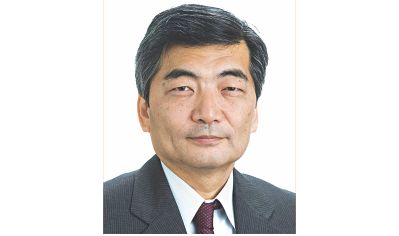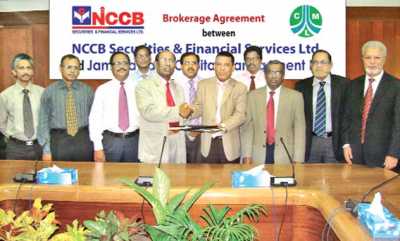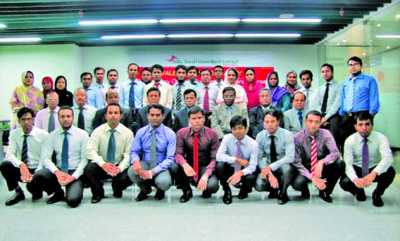Things look positive for Bangladesh: IMF Naoyuki Shinohara, deputy managing director of IMF, speaks on economic growth
 Naoyuki Shinohara
Naoyuki Shinohara
Bangladesh will need to grow by 7 percent to 8 percent a year to achieve its development objectives for the next decade, said Naoyuki Shinohara, deputy managing director of International Monetary Fund.
The skill set of the country's young labour force, along with the basic infrastructure, will need to be enhanced as well, Shinohara said in an exclusive interview with The Daily Star.
“The resilience of the Bangladesh economy over the past several years has been impressive, and GDP growth has been broad-based, thus helping the country achieve 6 percent growth on average.”
The agricultural sector, Shinohara thought, has benefited from the good weather conditions, continued policy support, and better access to credit, as well as favourable price trends.
While export-oriented industries, in particular ready-made garments, propelled the manufacturing sector, with a vibrant private sector taking advantage of the low unit labour costs to expand into new markets.
Finally, services have gained from relatively strong domestic demand bolstered by remittances and new policy initiatives allowing more private participation and increased competition, Shinohara added.
Despite the vast progress made over the past two decades, the fact that a large number of households still live below the poverty line concerns Shinohara.
"The IMF is with the government in its fight against poverty by designing policies that help strengthen governance, reduce waste and excesses, and channel resources to growth-critical areas,” he said.
“We see it as a two-pronged approach: higher income through higher growth and targeted benefits for those most vulnerable to adjustment.”
The government will need to make a concerted effort to ensure the safety net operations reach the society's neediest, Shinohara said.
The government can, however, expect the other development partners to provide vital support in this regard.
He expects the various reform measures taken under the current external credit facility (ECF) arrangement to consolidate higher growth in the medium-term.
Given Bangladesh's young demographic, vibrant private sector and the fact that it is sitting at the crossroads of the world's most dynamic economies, Bangladesh has great potential going forward, according to Shinohara.
"To take full advantage of this, the government will indeed need to generate more internal resources, mainly in the form of tax revenues, in order to remove social and physical impediments to growth."
Despite the global risks, the IMF expects Bangladesh's economy to expand by 5.8 percent in fiscal 2012-13, he said.
The risks associated to this growth outlook stem mainly from the uncertain external environment, he added.
The pace of expansion is expected to be slower than last year, mainly due to the more subdued growth in garment exports and private consumption.
Shinohara said the fund also expects headline inflation to stay in the 7-8 percent range this fiscal year, after coming down from double digits earlier in the year.
"Policy tightening is expected to further reduce the underlying pressures, but new ones could emerge if global food prices continue to rise. Greater exchange rate flexibility has helped absorb external pressures and reverse the decline in reserves we saw in 2011."
Shinohara said if the Eurozone crisis were to intensify Bangladesh's export growth could slow even further, seeing that nearly half of all exports receipts come from the European Union.
"At present, we expect a modest recession in the Euro area in 2012, followed by a weak recovery in 2013."
He said if the global slowdown becomes severe, remittances could also be affected, including those from the Gulf countries.
"Having said this, there could be offsetting effects on the balance of payments. They would arise mainly from a lower import bill due to more restrained imported garment inputs and oil import growth. The impact on the exchange rate would be driven by the supply and demand conditions in the market."
According to the conditions of the three-year ECF arrangement that IMF has approved for Bangladesh in April of this year, the government is committed to undertaking reforms to yield macroeconomic stability, reduce external vulnerability, and, ultimately, achieve higher growth.
In the face of external and fiscal pressures that emerged in 2011, macro-tightening measures have already been put in place.
"So far, the economy has responded well. Bangladesh Bank has been rebuilding its foreign reserves buffer since the early 2012. The government is also committed to moderate fiscal consolidation aimed at preserving stability."
"While we urge the policymakers to remain vigilant in the face of an uncertain external environment, the IMF is also prepared to step in when necessary to ensure programme targets are accommodating of the changing circumstances."
Shinohara said the budget for the current fiscal year provides good support to Bangladesh's macroeconomic stabilisation efforts.
"In our view, revenue targets are reasonably ambitious, factoring in ongoing improvements to tax policy and revenue administration. Expenditure levels are broadly appropriate, although we believe the annual development programme spending is higher than what the current capacity allows."
As a result, a lower-than-budgeted deficit target would be prudent, also factoring in the availability of external and domestic financing.
Shinohara said a major challenge for the government, as in the previous fiscal year, will be to keep subsidy-related costs under control and to ensure safety nets are in place to cushion the impact of administered price increases on the most vulnerable.
"Over the programme period, generating more tax revenues and better prioritising expenditure will also be crucial in reducing poverty and achieving the medium-term growth objectives."
The second instalment of the ECF loan is scheduled to be released in November. An IMF mission visited Dhaka In September to review implementation of the IMF conditions.
"The IMF mission has been generally satisfied with the progress made so far, particularly with respect to the quantitative targets set out under the ECF-supported programme.”
He added that most of the targets were met by the end of June 2012, which was the ECF arrangement's first test date and one of the main bases for going forward.
"However, discussions are still ongoing with the authorities on the forward-looking reform agenda, with further actions needed over the near-term to ensure structural reforms remain on track, notably those related to new VAT and banking legislation."
"Once satisfactory progress has been made in the programme, we would make a recommendation to the IMF's executive board to complete the review. Approval thereafter by our Board of this request would trigger the release of the second disbursement under the ECF arrangement."
The IMF official said the fund expects the government agenda to remain focused on reforms aimed at strengthening the tax policy, revenue administration, public financial management, monetary operations, financial sector and the trade and investment regime.
Under the ECF arrangement, the IMF is already working with the government to improve the taxation system, he added.
Shinohara urged the government to make efforts to woo in investors.
"Pre-election political uncertainty is not unique to Bangladesh. We, however, are confident that the government will remain committed to a reform path for a better future of the country,” he said.
"If this is the case, we believe investors -- both local and foreign -- will continue to pursue opportunities in Bangladesh."
News: The Daily Star/Bangladesh/11th-Oct-12
IMF won't loosen strings on loans The lender says it will not release the second instalment of $1b if conditions are not met by Nov
The International Monetary Fund (IMF) will not release the second instalment of its $1-billion credit to Bangladesh this November if the country fails to implement conditions on VAT and banking laws.
Finance ministry officials said the lender might delay the disbursement of $141 million if the government does not pass the VAT Act and Banking Companies Act in parliament next month, incorporating its recommendations.
The lender made its stance clear during a meeting between AMA Muhith, the finance minister, and Naoyuki Shinohara, a deputy managing director of the IMF, at Imperial Hotel in Tokyo.
In response, Muhith said the government would incorporate the IMF recommendations in the two Acts before they are placed in parliament for passage, according to officials who were present at the meeting.
The minister is now in the Japanese capital to attend the semi-annual meetings of the IMF.
In the meeting, Muhith also requested the IMF to waive a condition about the exposure limit of commercial banks in the stockmarket.
He sought concession from the IMF in keeping the bank's exposure limit to the stockmarket at 40 percent of their capitals. The IMF earlier asked the government to keep the exposure limit of a bank at 25 percent of its total capital.
The existing exposure limit of a bank is 10 percent of its deposits. An IMF mission, which visited Bangladesh last month, also conveyed the same message to the government as some of the major conditions were not met yet.
According to officials, the mission found major differences in the draft of the VAT law amendment proposal given to them and the one placed in parliament. They expressed serious concern about it.
A finance ministry official said the original draft to the amendment kept VAT at 15 percent in all stages of value addition but the rate was 5 percent in some cases in the final proposal.
The IMF also objected to the planned VAT exemption to different sectors for public interest.
In case of the Banking Companies Act, the lender wanted the government to cut the authority of the Banking Division and give more power to Bangladesh Bank.
The lender has approved $987 million for Bangladesh to help it overcome macroeconomic pressures and build a buffer reserve. The country received one of the seven instalments last year.
News: The Daily Star/Bangladesh/11th-Oct-12
Bti, teams up with ICB Islamic bank
Country’s first real estate developer building technology and ideas (bti) and ICB Islamic Bank, signed a corporate agreement with a view to improve the services provided to the employees and the clientele of both the organisations, says a press release.
Ashique Un Nabi, executive director, marketing of bti, and Rahat Masood, head of consumer products of ICB Islamic Bank, signed the agreement in the presence of bti’s managing director and ICB’s managing director, at bti celebration point.
The signing of this contract further strengthens the ties between these two leading companies.
Designed to enable a reciprocal relationship between bti and ICB Bank, the corporations aim to aid each other in promoting their products and adding to the welfare of their customers and personnel.
News: The Daily Independent/Bangladesh/10th-Oct-12
NCCB Securities inks panel broker deal with JBCML
 Manjum Ali, CEO of NCCB Securities and Financial Services Limited and Mirza Elias Uddin Ahmed, CEO of Jamuna Bank Capital Management Limited, seen exchange documents after signing an agreement in Dhaka recently.
Manjum Ali, CEO of NCCB Securities and Financial Services Limited and Mirza Elias Uddin Ahmed, CEO of Jamuna Bank Capital Management Limited, seen exchange documents after signing an agreement in Dhaka recently.
NCCB Securities and Financial Services Limited signed an agreement with Jamuna Bank Capital Management Limited (JBCML) on panel broker agreement recently.
Mohammed Nurul Amin, Managing Director and CEO of NCC Bank Limited attended the signing ceremony as chief guest, said a press release Tuesday.
Manjum Ali, CEO of NCCB Securities and Financial Services Limited and Mirza Elias Uddin Ahmed, CEO of Jamuna Bank Capital Management Limited signed the agreement on behalf of their respective organisations in Dhaka recently.
Consultant AK Md. Siddique, Deputy Managing Director TM Faruque Chowdhury of NCC Bank were present along with other senior executives of both the organizations.
Under the agreement, clients of Jamuna Bank Capital Management can do their share trading through NCCB Securities and Financial Services Limited.
News: The Daily Sun/Bangladesh/10th-Oct-12
SIBL opens branch at Demra .
 Al-hajj Nasiruddin, Chairman, Muhammed Ali, Managing Director of Social Islami Bank Limited, along with senior executives pose for photographs with the newly-recruited probationary officers of the bank after Valediction Ceremony of Probationary Officers Foundation Training Course at the corporate office in Dhaka recently.
Al-hajj Nasiruddin, Chairman, Muhammed Ali, Managing Director of Social Islami Bank Limited, along with senior executives pose for photographs with the newly-recruited probationary officers of the bank after Valediction Ceremony of Probationary Officers Foundation Training Course at the corporate office in Dhaka recently.
Social Islami Bank Limited (SIBL) opened its 79th branch at Demra in Dhaka recently.
Abdul Awal Patwary, former chairman of the bank, formally inaugurated the branch as the chief guest, said a press release.
Md Ali, Managing Director of SIBL, presided over the programme while Md Mohashin Miah, Deputy Managing Director, Managers of city branches, and customer of the bank attended the function.
News: The Daily Sun/Bangladesh/10th-Oct-12



